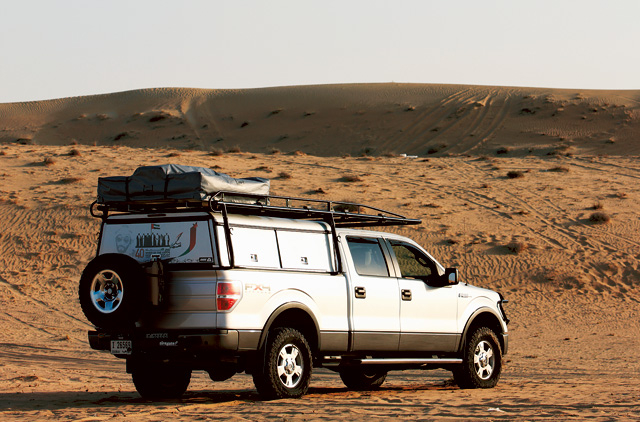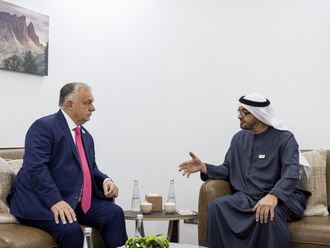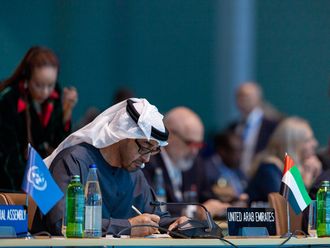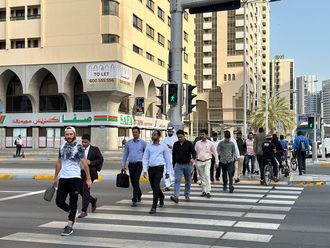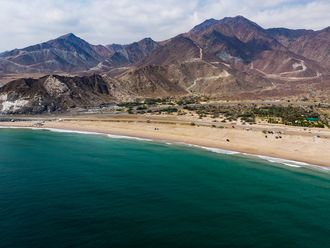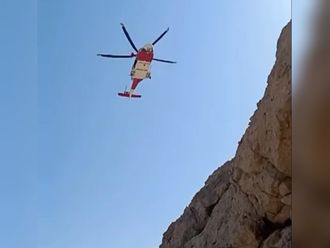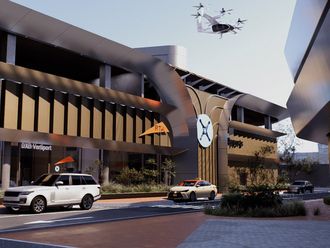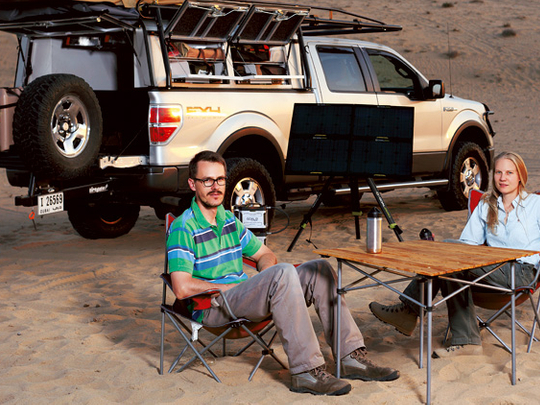
Early next week, Dubai-based David and Theresa Wernery will quit their jobs - he's a legal adviser and she's an investment banker - and start disposing of all their household goods in preparation for a 160,000km journey that will take them to 55 countries over six continents.
But this is no sight-seeing trip, or belated gap year before returning to their high-flying careers. When they begin their journey in March next year the couple is setting off to clean up the planet.
Passionate environmentalists, the Wernerys will investigate the ecological impact of pollution in the name of their charity, Plastic Not So Fantastic (PNSF).
Theresa, 28, who has been going camping since childhood, says: "For me, outdoor sites are treasured environments, but unfortunately, there is not a single spot anywhere in the country that has not been tainted with carelessly discarded refuse and waste.
"If you have a love of nature, it is logical you would want to protect it."
David, 34, says: "We decided that by exploring the causes, effects and methods of plastic waste prevention in each of the countries we visit, we could also document ‘best practice' for alternatives to single-use plastics. Our purpose is to find interesting projects elsewhere and to bring that experience here."
Plastic impact
The Wernerys came up with the idea for the expedition during one of their weekend camping trips in the UAE because of the amount of plastic rubbish strewn across the desert. "It has become an environmental eyesore as the natural beauty of the landscape is being swamped by plastic litter,'' says David. More than just unsightly, this plastic refuse can also have fatal consequences when it is ingested by desert wildlife. Having spent much of his free time as a child at the Central Veterinary Research Laboratory (CVRL) in Dubai - where his father, Dr Ulli Wernery, is the scientific director - David, is particularly aware of the effect of plastic waste on animals. "As a kid, I often saw owners of camels, gazelles and farm animals visiting the lab wanting to know the cause of the deaths of their animals. Postmortems revealed it to be plastic ingestion," says David.
When an animal eats plastic, it creates a calcified mass, called a gastriclith, which can block the intestines, leaving the animal feeling constantly full. They don't eat and, therefore, starve to death.
"Gastricliths as big as 58kg have been found in camels," says David. "We are regularly confronted with the sight of animals, taken in for necropsy, which have evidently died of too much plastic ingestion.
"These animals must have suffered in pain and hunger. When Theresa and I go out exploring and camping in the UAE, and see animals eat plastic, we feel such frustration knowing that they are most likely going to die because of this. It is even more heart-wrenching to know that we humans are responsible for it."
Deeply disturbed and saddened at what they witnessed first-hand, the couple chose to spearhead a campaign against plastic pollution and founded PNSF in 2010. They have held innumerable workshops in residential communities and corporate offices across the UAE to raise awareness of the dangers and impact of plastic pollution.
Long-term implications
"We believe that making people aware that there is a plastic pollution problem is a vital first step," says Theresa. "We are not advocating a complete abolition of plastic. Our concern is against single-use plastic, especially plastic grocery bags and water bottles. Plastics degrade very slowly in nature and some plastics may persist in the environment for thousands of years. They very often find their way into the sea where it can cause untold damage to marine creatures and the environment. Despite availability of several alternatives, people continue to use them for reasons of expediency or economics. People should be made aware of their responsibility to use plastic in a more sustainable manner."
Several months into the campaign, David and Theresa felt they wanted to do even more to raise awareness of the plastic pollution problem. "We wanted to show that our consumption of single-use plastics in the UAE has not only regional, but also global implications," says Theresa.
She cites the 1992 case of a shipping crate containing 28,000 plastic yellow ducks that fell overboard on its way from Hong Kong to the US to illustrate her point. While the image of plastic ducks bobbing halfway around the world might not seem serious, 20 years later they are still washing up on the shores of Hawaii, Alaska, South America, Australia and the Pacific Northwest, highlighting the far-reaching and long-term effects of plastic pollution.
Many of the toys would also have been ingested by marine creatures. This negative impact of human activity on sea life is highlighted in Donovon Hohn's book, Moby Duck, which traces the journey of the lost bath toys around the globe. The endnotes list the contents of a dead whale's stomach: it is full of man-made rubbish.
Global mission
"Being involved with environmental protection from an early age, through our parents, we quickly realised that an environmental awareness campaign with a world road trip was an ideal symbiosis," say David. "Reaching out to others with a purpose and mission seemed so very rewarding."
The expedition will be on the road for 18 months and the couple plan to return to the UAE in 2013.
"We are now kitting out our expedition vehicle," explains David. "We are going very basic; we don't intend to stay in any hotels, but will camp in our roof-top tent at nights."
The trip will start in Dubai and after touching Iran, Turkey, Mongolia, Russia and Siberia, among other countries will move to Alaska and Canada before reaching New York by summer's end in 2013. The couple will then tour the African continent, travelling through Rwanda, Tanzania, Kenya, Ethiopia, Sudan and Egypt before returning home to the UAE via Saudi Arabia.
"We look forward to involving schools and universities in the UAE so that students can take an active part in our expedition by directing us to the NGOs or individuals spearheading environment projects in the countries we visit," says David.
High-profile support
"The Expedition has been endorsed by the United Nations Educational Scientific and Cultural Organisation (Unesco)," confirms David, "so we will visit several Unesco biosphere reserves to evaluate the levels of plastic pollution - whether it is caused by internal consumption or due to external influences - and give suggestions on how to reduce that. We will start with the UAE's Marawah Marine Biosphere Reserve of which Bu Tinah island [off the west coastline of Abu Dhabi] is a part."
Driving a petrol-fuelled car around the world is certainly not environmentally-friendly, admits David. "However, in the absence of a viable alternative and the fact that it will produce fewer greenhouse gases than we currently produce living in our two bedroom villa in Dubai, we chose this option."
Chiefly self-funded, the Wernerys are also sponsored by various corporates as they seek to inspire people to change their consumption habits away from single-use plastics.
Making a difference
- Who: David and Teresa Wernery
- What: Campaigning to reduce single-use plastics
- How: Going on a world tour to gather information on plastic use


